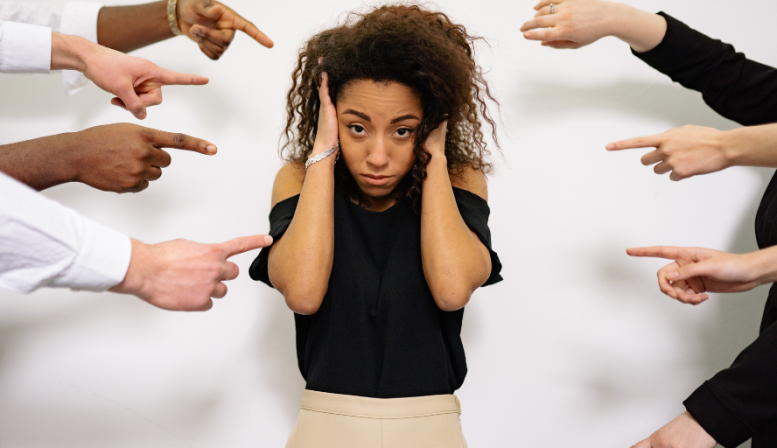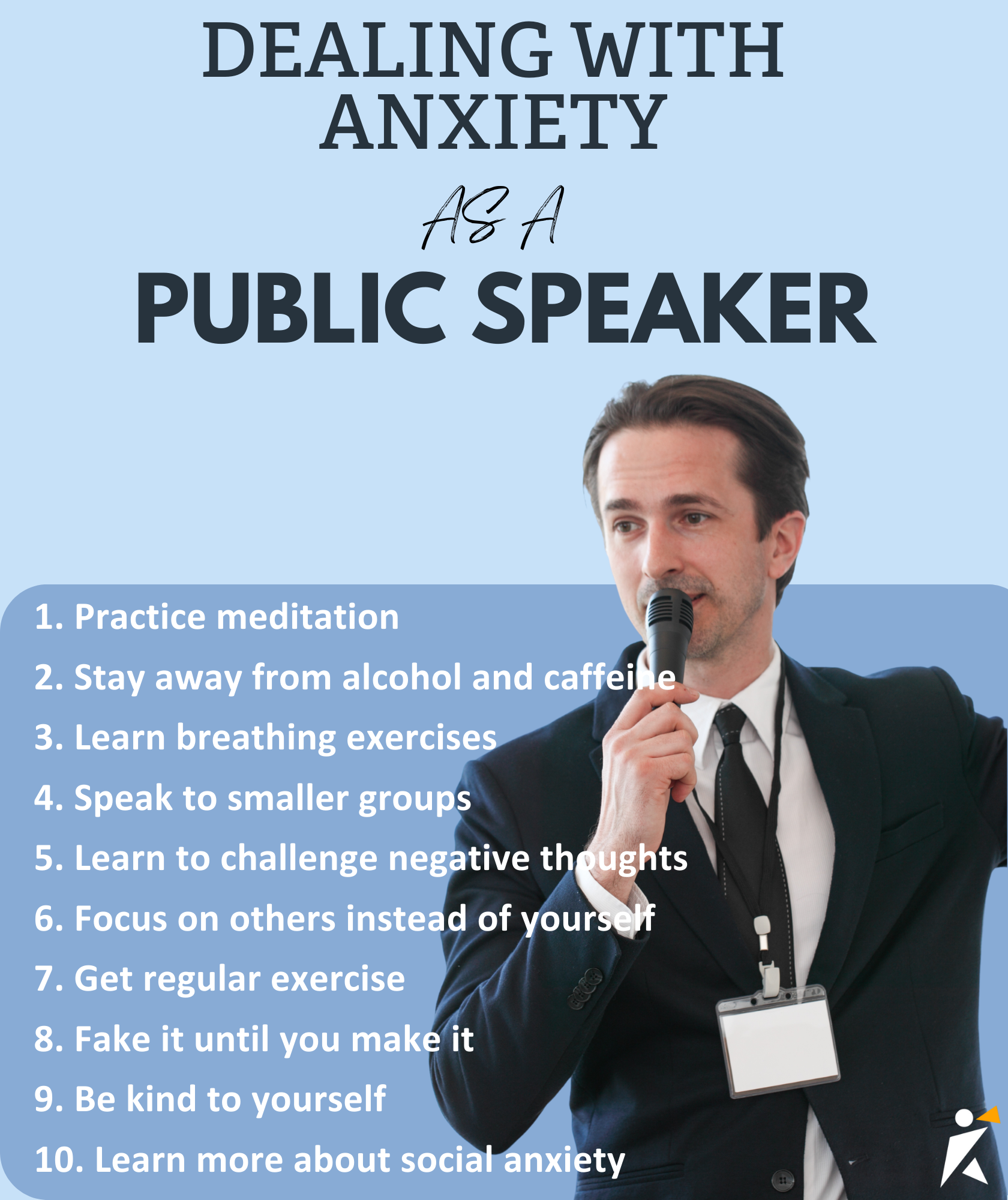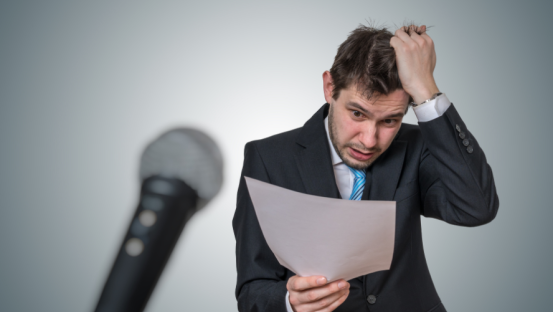Dealing With Social Anxiety as a Public Speaker

Social anxiety can be difficult to deal with, and affects a surprising number of people. In fact, it’s thought that one in every eight people suffers from some form of social anxiety at some point in their lives.
And so it stands to reason that with such a high percentage of people suffering from social anxiety, there are a good number of public speakers out there who are also coming to terms with it. But how do they reconcile that with a job that requires them to be on stage in front of people?
That’s exactly what we’re going to take a look at today, so let’s dive in and get started.

1. Practice meditation
Meditation can be useful to public speakers who are dealing with social anxiety because it can help them to center themselves and to reduce stress. Of course, this isn’t something you can do when you’re on stage in the middle of your presentation, but it can be a great help when you’re feeling anxious ahead of the event or to keep you calm when you’re traveling. Practicing meditation can also teach you other useful techniques such as better breathing.
2. Stay away from alcohol and caffeine
Alcohol and caffeine can both have a huge impact on your anxiety, and so it’s best to stay away from the two of them if you can so that you don’t cause natural spikes in your heartbeat that can precipitate a full-blown panic attack. When dealing with social anxiety, a lot of it comes down to taking preventative measures so that you can give yourself the best shot at avoiding it.
3. Learn breathing exercises
We touched on this a little earlier when we talked about practicing meditation. The idea is that by regulating your breathing, you can avoid hyperventilating and help to slow your heart rate. The great thing about breathing exercises is that you can often do them surreptitiously without anyone noticing that you’re doing them, and there are even one or two of them that you can do on stage while you take a couple of moments for one of your points to sink in.
4. Speak to smaller groups
Speaking to smaller groups can be a great way to come to terms with your social anxiety because it’s almost like a form of graded exposure. As you get more and more comfortable with the groups that you’re talking to, you’ll find that you’re able to increase the size of audience without suffering those adverse effects. Given time, you’ll be speaking to a room full of people without feeling any of that fear that you were used to.
5. Learn to challenge negative thoughts
This is a technique that anxiety sufferers are often taught as a part of cognitive behavioral therapy (CBT) courses, and there’s a reason why it’s so popular – It works. The idea is to take those negative thoughts and put them to the test. For example, if you’re worried that no one is going to want to talk to you, ask yourself why you think that, or what the worst case scenario is if that thought is true. The chances are, even the worst case scenario isn’t actually as bad as you think it is.
6. Focus on others instead of yourself
Anxiety is an inward-facing phenomenon, something that we internalize and then dwell on by over-focusing on ourselves and the thoughts we’re having. By switching that focus and trying instead to focus all of your attention on the people you’re speaking to, you can distract yourself from the anxiety you’re feeling while simultaneously coming across as a better communicator. The people you’re speaking to will notice that you’re paying attention and will respond well as a result of it.
7. Get regular exercise
It’s long been known that regular exercise can help with mental health conditions, and there are a variety of different reasons for that. For our purposes, the main things to note are that it can help to lower your resting heart rate and that it can make you feel more comfortable in your own skin. There are really no reasons why it’s a bad idea to get regular exercise, and there are a ton of benefits on offer if you take the time to do it.
8. Fake it until you make it
This might sound like bad advice, but you’d be surprised by how well it works and by how many people swear by it. The idea here is that if you’re struggling with social anxiety, one of your best options is to act the part of someone who doesn’t have social anxiety, and to keep the façade going until it becomes second nature. The worst case scenario is that it won’t work. The best case scenario is that you’ll end up overcoming your social anxiety and becoming the person you’ve always wanted to be in social situations.
9. Be kind to yourself
We all need to be kind to ourselves and to forgive ourselves when we make mistakes or when things don’t quite pan out the way we were hoping they would. If you’re not kind to yourself, how can you expect anyone else to be? One of the most important aspects of being kind to yourself is understanding that you have social anxiety and that you’re not always going to be able to deal optimally with social situations. If you have to cut short your social time and retreat to your hotel room, that’s fine – but make an effort first and then be kind to yourself if it doesn’t work out.
10. Learn more about social anxiety
Living with social anxiety is like living with any other health or mental health condition in that if you want to come to terms with it and to stop it from having a negative impact on your life, you need to understand it. It’s that age old idea of knowing your enemy. Spend some time reading up on social anxiety and understanding both the symptoms and the reason that it happens in the first place, as well as the survival techniques that will help you to get through it.
Conclusion
Now that you know our thoughts on how you can deal with social anxiety as a public speaker, we want to hear from you. Have you had to deal with social anxiety? If so, what did you do to come to terms with it?





